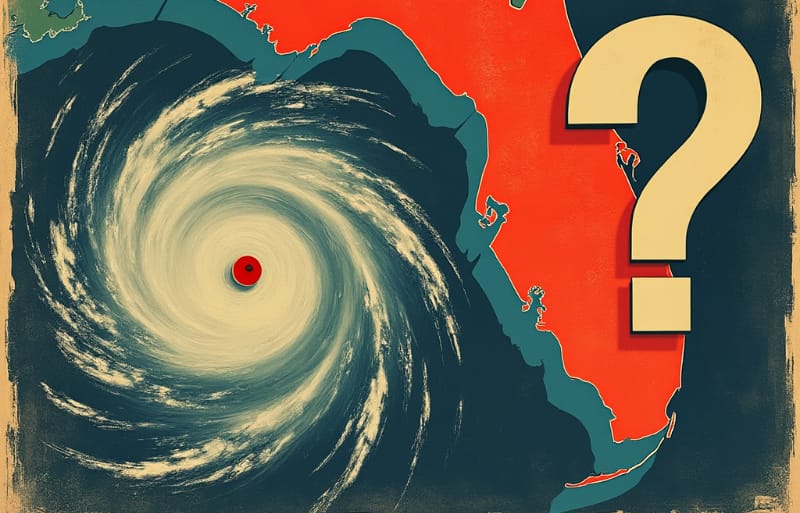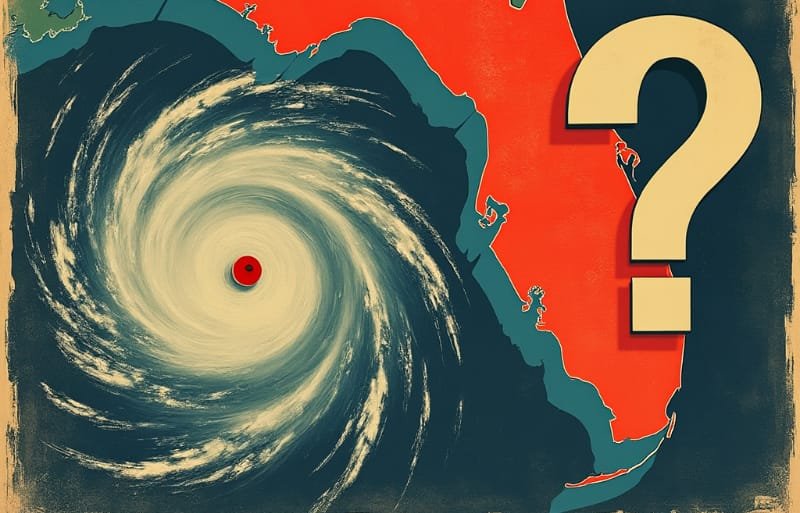[ad_1]
Projections for the potential insurance industry loss from hurricane Milton given just a few hours before landfall by two reinsurance broker meteorologists ranged from $15 billion to $40 billion, which appears a reasonable place to begin thinking about the potential quantum of losses set to be experienced. As we reported earlier this morning, our sources were still speaking of a wide range of possible loss outcomes last night, but all pointed to something below $50 billion as the landfall location south of Tampa Bay became clearer.
As we reported earlier this morning, our sources were still speaking of a wide range of possible loss outcomes last night, but all pointed to something below $50 billion as the landfall location south of Tampa Bay became clearer.
In their last updates prior to Milton making landfall, two well-known meteorologists from the reinsurance broking industry gave their views.
Andre Siffert, Senior Meteorologist from BMS Group, said, “The fears of the top ten loss event seem to have passed with the shift in track away from Tampa Bay, but this will still add to the already $16B loss of five landfalling events so far this season.
“How much it adds to the loss is still in question, but it would appear that a $15B event is not out of the question for the insurance industry, but the much higher loss scenarios of yesterday are likely off the table.”
Siffert had highlighted the significant uncertainty over the eventual loss quantum for days, having previously said it would likely be above $20 billion, with much higher numbers possible depending on landfall location, intensity and other storm features.
Meanwhile, Steve Bowen, Chief Science Officer and Meteorologist at reinsurance broker Gallagher Re gave his companies view prior to landfall.
“The current NHC track forecast and intensity would result in a substantial loss for the private insurance market. A preliminary loss minimally ranging from USD30 billion to USD40 billion would be expected. Should the storm wobble slightly north closer to Tampa, then a private market loss approaching USD50 billion would be in a reasonable range of possibility. Should the track wobble slightly further south closer to Venice, then the private market loss would be closer to the lower end of the range,” Bowen explained.
In the end, the landfall location at Siesta Key, Sarasota, was roughly half way between Tampa Bay and Venice, so Gallagher Re and Bowen’s pre-landfall scenario certainly had the location right.
Bowen also commented on the National Flood Insurance Program (NFIP), which of course has its FloodSmart Re catastrophe bonds that begin to attach at $6 billion of losses to the Program, while its traditional reinsurance starts to attach at $7 billion.
Bowen said, “Regardless of scenario, the cost to the National Flood Insurance Program (NFIP) is likely to be calculated as a mid-to-high single-digit billion impact. This would be on top of the expected significant loss into the billions from Helene. Overall, this would make 2024 one of the most expensive years ever recorded for the NFIP.”
Mid-to-high single-digit billions of losses to the NFIP from hurricane Milton will likely keep those lower down FloodSmart Re cat bonds in focus for some, as it will take time for the eventual claims burden of the NFIP to be understood.
Bowen also commented on the potential economic loss from Milton, saying, “Using historical events as a guide, should the combined private and public insured loss exceed USD30 billion, the total economic loss would be expected to minimally reach USD75 billion. If there is considerably higher coastal inundation or inland flood damage, or an even higher than expected swath of wind damage, this total could reasonably be expected to surpass USD100 billion.”
We also understand that stochastic loss projections shared by catastrophe risk modelling companies with their clients prior to landfall also fall into that range, from $15 billion to $40 billion, although some included surge impacts and some didn’t, making comparability challenging.
These helpful insights from reinsurance industry meteorologists provide a useful place to begin thinking about where the eventual insurance and reinsurance industry losses from hurricane Milton may land and are well aligned with the other industry sources we have spoken with.
It’s worth noting, that if we take Icosa Investments’ Sarasota landfall scenario, which the cat bond manager said was likely an industry loss in a range from $20 billion to $70 billion, with a corresponding catastrophe bond market hit of 0% to 6% and factor it for this range, the cat bond market hit would appear more likely to be in the 0% to 4% range, with perhaps a slightly lower top-end.
Once again, we must highlight the great uncertainty that remains, given Milton is still impacting Florida at this time.
You can track this and every Atlantic hurricane season development using the tracking map and information on our dedicated page.
Also read:
– Hurricane Milton Cat 3 landfall in Sarasota. Worst case Tampa loss scenarios avoided.
– Hurricane Milton: Insurance, reinsurance, cat bonds, ILS ready to respond.
– Some mutual cat bond and ILS fund NAVs fall further on hurricane Milton threat.
– Hurricane Milton industry loss at $25bn+ changes pricing narrative: Goldman Sachs.
– Hurricane Milton cat bond loss potential still in wide range: Icosa Investments.
– Hurricane Milton seen denting cat bond market -1.4% (excl. surge): Plenum.
– 33% chance hurricane Milton loss above $50bn. Would drive hard market: Euler ILS Partners.
– Hurricane Milton Cat 5 again. Tracks slightly south. Uncertainty still high, loss range wide.
– Safe to say hurricane Milton likely a $20bn+ insurance market event: Siffert, BMS.
– Hurricane wind speeds forecast across entire Florida Peninsula as Milton approaches.
– Mexico’s catastrophe bond presumed safe from hurricane Milton.
– Stone Ridge leads managers cutting mutual cat bond or ILS fund NAVs on hurricane Milton.
– Hurricane Milton could be a huge test for the entire (re)insurance market: Evercore ISI.
– Hurricane Milton losses could amount to tens of billions, but uncertainty high: BMS’ Siffert.
– As hurricane Milton intensifies, Mexico’s catastrophe bond comes into focus.
– Material hurricane Milton losses could change 2025 property reinsurance price trajectory: KBW.
– Cat bond & ILS managers explore options to free cash, as hurricane Milton approaches.
– Hurricane Milton: First Tampa Bay storm surge indications 8 to 12 feet.
– Hurricane Milton is biggest potential ILS market threat since Ian in 2022: Steiger, Icosa.
– Hurricane Milton forecast for costly Florida landfall. Cat bond & ILS market on watch.
[ad_2]
Source link
Share this content:

